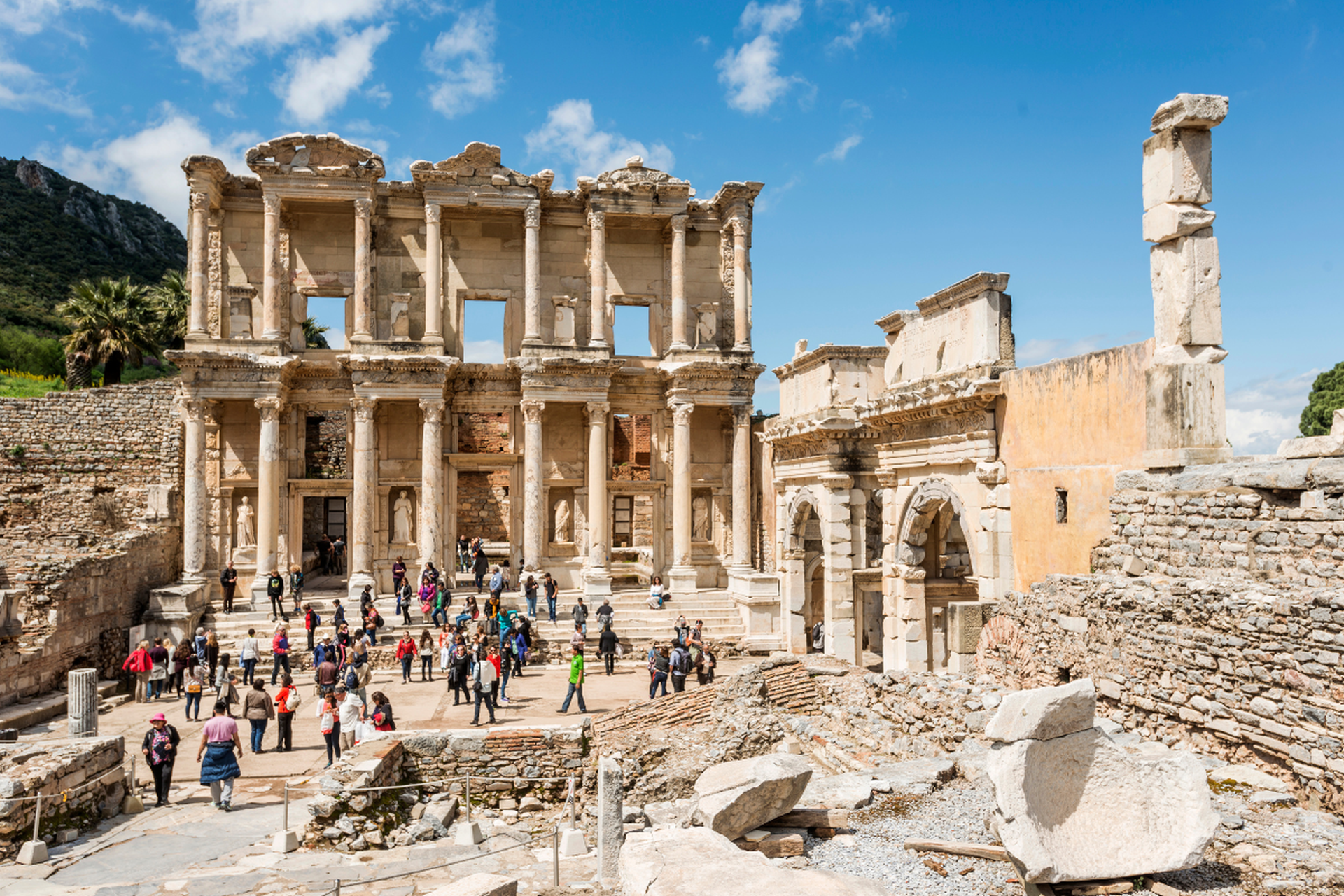Ephesus, nestled along the western coast of Anatolia, Türkiye, stands as a testament to the grandeur and significance of ancient civilizations. With a history spanning over several millennia, this awe-inspiring city has played a pivotal role in the development of architecture, culture, religion, and trade throughout the ancient world. Let us delve into the rich tapestry of Ephesus and explore why it remains an important archaeological and historical site today.
- The Splendor of Architecture: Ephesus flourished as a prominent Greek and Roman city, showcasing remarkable architectural achievements. One of its most iconic landmarks is the Library of Celsus, an exquisite structure that housed thousands of scrolls. This impressive library symbolizes the intellectual and cultural significance of Ephesus. Additionally, the colossal theater of Ephesus, with a seating capacity of around 25,000, is a testament to the city’s theatrical traditions and their impact on ancient society.
- The Temple of Artemis: Ephesus was home to one of the Seven Wonders of the Ancient World—the Temple of Artemis. This magnificent sanctuary, dedicated to the Greek goddess of hunting, was a symbol of spiritual devotion and drew pilgrims from far and wide. Its grandeur reflected the wealth and influence of the city, and its destruction and subsequent reconstruction mirrored the rise and fall of empires.
- Center of Early Christianity: Ephesus holds immense significance in Christian history. The city was mentioned in the Bible’s New Testament, particularly in the letters of Paul the Apostle to the Ephesians. Ephesus was one of the Seven Churches of Revelation and played a pivotal role in the spread of Christianity during its early years. The ruins of the Basilica of St. John and the House of the Virgin Mary, believed to be the final resting place of Jesus’ mother, attract countless pilgrims and tourists.
- Economic and Commercial Hub: Ephesus thrived as a bustling commercial center and a hub of trade routes connecting the East and the West. The city’s strategic location and access to the Aegean Sea facilitated the exchange of goods, ideas, and cultures. Its commercial success brought prosperity to the region, and evidence of its economic importance can be seen in the grandeur of its buildings and public spaces.
- Preservation of Ancient Culture: The meticulous preservation of Ephesus allows us to glimpse into the daily lives and traditions of its inhabitants. Walking through the well-preserved streets and structures, visitors can witness the remains of ancient public baths, shops, and houses, providing a comprehensive understanding of urban planning and daily life in antiquity. The archaeological excavations in Ephesus have yielded an abundance of artifacts and inscriptions that continue to enrich our knowledge of ancient civilizations.
Ephesus stands as a timeless testament to the cultural, architectural, and historical significance of ancient cities. Its splendid structures, religious sanctuaries, and commercial prosperity paint a vivid picture of the city’s past glory. Whether one marvels at its architectural wonders, delves into its religious significance, or explores its economic influence, Ephesus continues to captivate visitors from around the world. By preserving its legacy, we honor the ancient civilizations that thrived within its walls and gain valuable insights into the interconnectedness of humanity across time.

